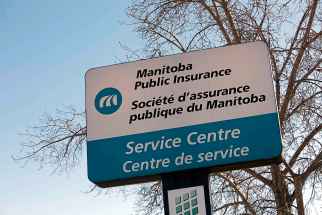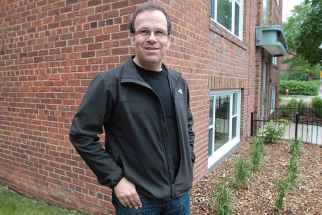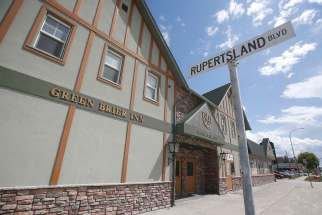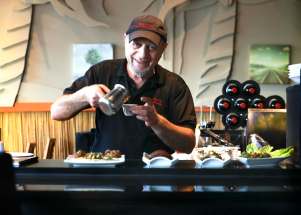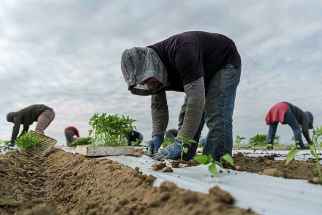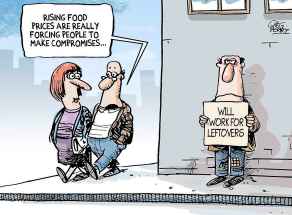Green Party polling surge benefits Pallister’s PCs
Read this article for free:
or
Already have an account? Log in here »
To continue reading, please subscribe:
Monthly Digital Subscription
$0 for the first 4 weeks*
- Enjoy unlimited reading on winnipegfreepress.com
- Read the E-Edition, our digital replica newspaper
- Access News Break, our award-winning app
- Play interactive puzzles
*No charge for 4 weeks then price increases to the regular rate of $19.00 plus GST every four weeks. Offer available to new and qualified returning subscribers only. Cancel any time.
Monthly Digital Subscription
$4.75/week*
- Enjoy unlimited reading on winnipegfreepress.com
- Read the E-Edition, our digital replica newspaper
- Access News Break, our award-winning app
- Play interactive puzzles
*Billed as $19 plus GST every four weeks. Cancel any time.
To continue reading, please subscribe:
Add Free Press access to your Brandon Sun subscription for only an additional
$1 for the first 4 weeks*
*Your next subscription payment will increase by $1.00 and you will be charged $16.99 plus GST for four weeks. After four weeks, your payment will increase to $23.99 plus GST every four weeks.
Read unlimited articles for free today:
or
Already have an account? Log in here »
Hey there, time traveller!
This article was published 25/06/2019 (2363 days ago), so information in it may no longer be current.
When you look at the results of the latest Free Press-Probe Research poll on voting intentions, it’s not hard to see why Premier Brian Pallister is in a hurry to have another election. At first blush, the poll describes conditions that are nearly perfect for another Tory majority.
The survey found that province wide, the Progressive Conservatives are maintaining a commanding lead over the NDP and, even more so, the Liberals. In Winnipeg, the race is much tighter. But Pallister and his Tory team will have the advantage of a better funded, better executed campaign than any of the opposition parties.
However, the really good news for the governing Tories is the surge in support for the Green Party.
Both province wide and in the key electoral battleground of Winnipeg, the Greens have risen to double-digit levels of support. This mirrors a political trend seen in other provinces, and nation wide, as the Greens capture increasing voter attention.

!function(e,t,s,i){var n=”InfogramEmbeds”,o=e.getElementsByTagName(“script”)[0],d=/^http:/.test(e.location)?”http:”:”https:”;if(/^/{2}/.test(i)&&(i=d+i),window[n]&&window[n].initialized)window[n].process&&window[n].process();else if(!e.getElementById(s)){var r=e.createElement(“script”);r.async=1,r.id=s,r.src=i,o.parentNode.insertBefore(r,o)}}(document,0,”infogram-async”,”https://e.infogram.com/js/dist/embed-loader-min.js”);
A recent national Abacus Data, released in early June, showed that while only nine per cent of respondents said they intended to vote Green in this fall’s federal election, another 35 per cent will consider the Green option. That suggests a very high level of dissatisfaction among voters with the Liberals, Conservatives and NDP.
A similar trend is developing in Manitoba. The Probe numbers show Green support rising to 14 per cent, both province wide and in Winnipeg. That is a doubling of support since our last poll in March. Why is that good news for the Tories? You need only look at which parties have been bleeding support to the Greens.
Both the NDP and Liberals lost a modicum of support in this poll. The NDP are down to 26 per cent (from 30 per cent in March), and the Liberals are down to 16 per cent (from 21 per cent). The only party not affected as the Greens surge into contention has been — you guessed it — the governing PCs.
There could be a significant number of Manitoba voters who are not seeing a legitimate option among the traditional parties. For these voters, who are unlikely to vote for the Tories under any circumstance, then the Greens could be a safe port in this storm of underwhelming choices.
In many ways, a Green surge would serve the Tories better than traditional vote-splitting scenarios. Historically, the Tories have relied on the Liberals to do just well enough to steal votes from the NDP to keep safe Tory seats, well, safe. It doesn’t work quite perfectly in every riding — Tories and New Democrats can fight for the same voters in certain ridings — but a Liberal-NDP split has served the PCs well in past election.
If the Greens can sustain or even grow their support in the September election — and that’s a very big ‘if’ — then it will likely come at the expense of both the NDP and Liberals. That is certainly the trend exhibited by these most recent poll results; as the Greens have grown in support, both the Liberals and NDP have dropped while the PCs have remained constant.
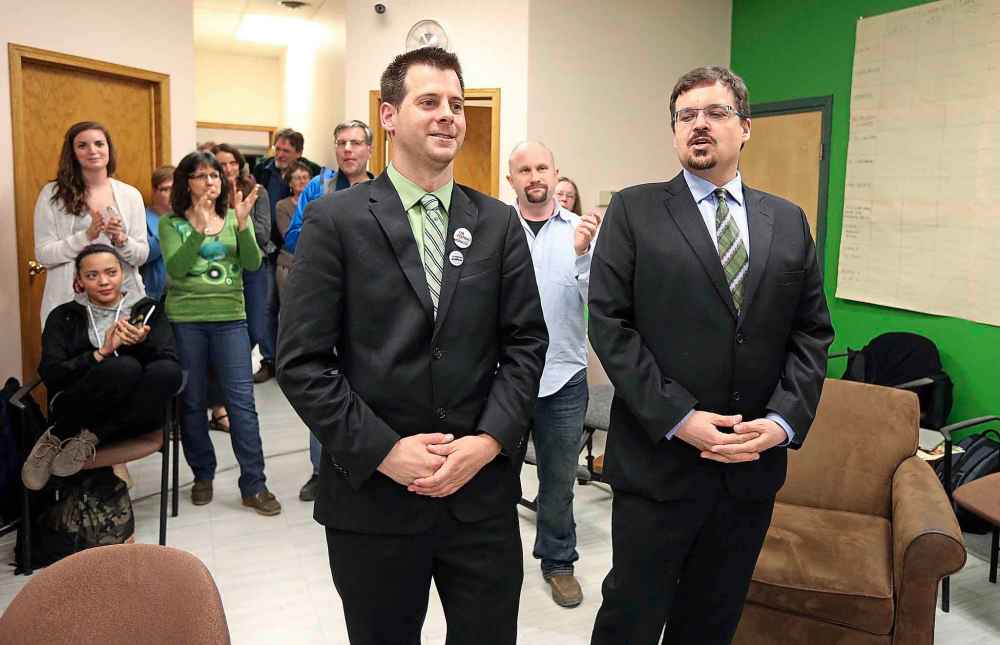
A Green-led vote split on the centre-left is not a vaccine against a badly run Tory campaign, and it will do nothing to defuse simmering issues like ER closures, public sector wage freezes and — most recently — political interference in operations at Manitoba Public Insurance. All three issues will be in play, particularly in Winnipeg, as the campaign gets underway.
It is also not necessarily a mitigating factor in Pallister’s decision to call an early election.
More than a few loyal Tories are losing sleep right now, concerned that Pallister is inviting the wrath of voters by calling the election a full 13 months before he was legally required to under a fixed-date election law. For those worry-warts, Probe Research found that nearly half of all Manitobans believe the premier should have waited until October, 2020.
Of greater concern is the fact that 56 per cent of older voters — the people who you can count on to show up to vote regardless of when it’s held and what the issues are — really don’t like the early election. In most elections, concerns about snap election calls tend to dissipate once the actual campaign gets underway. In a few instances, however, it has become an anvil around the neck of premiers who lack capacity for delayed gratification.
What does it all add up to? A lot depends on whether the spike in Green support holds up or whether it is just another example of the electoral "parking lot" phenomenon.
Parking lots are where unmotivated survey respondents linger as they toy with the idea of actually supporting a third or fourth party. Lamentably, much of this support is a mirage that evaporates come election day, and voters defer to their traditional parties of choice.
This poll confirms two things. First, the reasons why Pallister called an early election. And second, that the conditions are still present for Pallister to regret making that decision.
dan.lett@freepress.mb.ca

Born and raised in and around Toronto, Dan Lett came to Winnipeg in 1986, less than a year out of journalism school with a lifelong dream to be a newspaper reporter.
Our newsroom depends on a growing audience of readers to power our journalism. If you are not a paid reader, please consider becoming a subscriber.
Our newsroom depends on its audience of readers to power our journalism. Thank you for your support.


